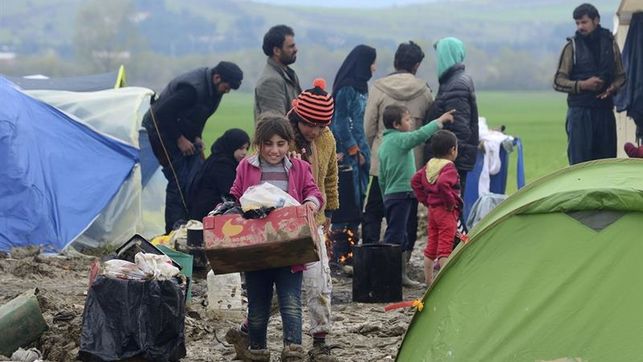Why do girls, adolescents and women migrate? Why would they leave their countries of origin and embark on the misadventure of an undocumented journey with the certainty that they will suffer on the way? And if they do make it, will they be able to survive and deal with the post-border hell? That’s if they reach their destination at all and avoid becoming one more statistic in the number of the disappeared and dead in a migration through no-man’s-land, without any authority searching for them and dignifying them by using their names and recognizing their identities.
This is a tragedy even if you only imagine it, but this is a reality, and Guatemala is forcing thousands of girls, adolescents and women to attempt to save their lives in another country. The United States appears to be the closest helping hand, but this is only a fantasy arising out of desperation. It is well known that the USA’s immigration policy disrespects the human and labour rights of undocumented persons. Abuse by smugglers, the Mexican authorities and the Border Patrol turns the journey into the worst of all hells for any human being. And the viciousness with which girls, adolescents and women are violated is appalling. Why does forced immigration and these abuses continue to be invisible and overlooked? What is the benefit for those governments involved?
They are trying to save their lives, fleeing a patriarchal system that abuses and excludes them. They are fleeing from misery, poverty and famine, from gender and domestic violence, and from femicide. They are fleeing social cleansing. They are fleeing the decay of a system that victimizes them. They are fleeing from a society indifferent to such atrocity. They are fleeing classism, racism, abandonment and oblivion.
They are fleeing because they have lost all hope, if perishing in the journey is the least of their problems. They are single mothers, girls and adolescents that criminal gangs have abused and put a price on their heads. But they are also abused within the family, by their own fathers or close relatives, by their spouses. Migration is forced; no one would risk their life just like that to venture on such a journey on a whim.
That effort, that psychosis, that pain and anguish. That desolation and that longing; they return to the home country converted into remittances. The illusion of a home, of a meal on the table for their family, of footwear and schooling for the children who were left behind. For the parents back home. For siblings and grandparents.
When will this situation change? When will Guatemala stop exporting girls, adolescents and women for the sexual exploitation networks, for labour and organ trafficking that proliferates along the undocumented journey between Mexico and the United States? When will Guatemalan society stop being indifferent to those most abused by the system? When will it be a country with a comprehensive policy that works for development, social justice and gender equality?
In the meantime, thousands will continue to emigrate on those pilgrimages looking in another country for what their own could not offer them.
Translated by Marvin Najarro






